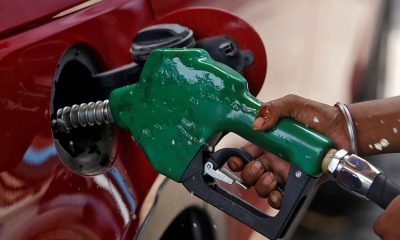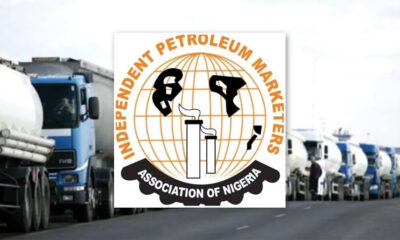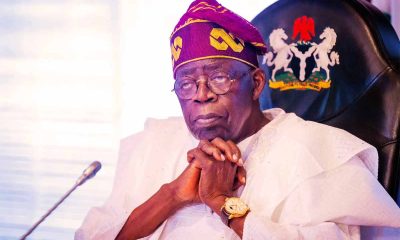Business
Lack of licence, foreign exchange, others hinder fuel importation

Barely a month after deregulation, operators in the downstream sector have not been able to import petrol into Nigeria, due mainly to a lack of license and foreign exchange.
A report by Vanguard stated that many oil marketers that applied for licence are still waiting for the Nigerian Midstream and Downstream Petroleum Regulatory Authority, NMDPRA, to release it.
It also showed that the six companies, including Eterna, which got the license have not started importing the product into the country.
The checks further indicated that despite the floatation of foreign exchange rates by the Central Bank of Nigeria, CBN, many oil companies still find it difficult to go into business.
A visit to many private depots in Apapa, Lagos, showed that the oil marketers are not contemplating importation in the coming weeks because of uncertainties currently staring oil marketers in the face.
READ ALSO:
- NiMet predicts 3-day cloudiness, thunderstorms
- Tension as gunmen kill naval officer in Lagos
- BREAKING: Top communication professor Lai Oso, dies in auto crash
This means the Nigerian National Petroleum Company Limited is the only entity still importing fuel into the country.
The national president, Independent Petroleum Marketers Association of Nigeria, IPMAN, Elder Chinedu Okoronkwo, could not be reached for comments, yesterday.
But in an interview with Vanguard, yesterday, the national operations controller of IPMAN, Mike Osatuyi, who noted said the oil marketers have not yet commenced the importation, said: “The cost of importing petrol has tripled because of subsidy withdrawal.
‘’We now need more funds to put into the business than before. Remember the exchange rate of the naira has also increased from over N400/ a dollar to over N700/per a dollar.
“This means that a lot of funds are needed than before. it is not easy for a single company to bring out that level of money. So, we are discussing with the banks.
‘’It will take some time to conclude the various discussions before securing funds for the importation. The price of petrol may be high at the initial period, but it would drop later as many oil marketers begin to import the product.”
Ex-depot price rises to N505 per litre
Already, he said the ex-depot price of the product has increased from over N400 per litre to N505 over the weekend, thus forcing the independent marketers that lift the product from private depots to sell at different prices, ranging from N510 -N530, depending on location, to recover cost.
It takes time to get license —Applicant
A chief executive officer, who pleaded anonymity, said: “We have applied for license to import. We are waiting on the regulator. We also need huge foreign exchange at a competitive rate because it cost billions of naira to bring a mother vessel into the country. This has to be done in an environment of certainty.
“We cannot dabble into fuel importation at this time. Adequate caution is required from everyone, including the banks that will provide the funds, to ensure that such investment could be recovered at least with minimal profit.
‘’It is a business that one can easily get his or her fingers burnt. We are currently watching the investment landscape and will import at the right time.”
The Authority Chief Executive, Nigerian Midstream and Downstream Petroleum Regulatory Authority, NMDPRA, Farouk Ahmed, did not respond when Vanguard reached out yesterday
Meanwhile, transporters, including Uber, have increased their fares by more than 100 per cent on all routes.
For instance, it now costs over N2,000 for commuters to move from Ikorodu to Mile 2 in Lagos, a distance that used to be below N1,000.
It also cost more than N1,500 to travel from Marina to Ajah, a distant that used to be less than N1,000.
Business
Dangote urges wealthy Nigerians to invest in industries, not luxury cars, private jets

Dangote urges wealthy Nigerians to invest in industries, not luxury cars, private jets
Africa’s richest man, Aliko Dangote, has called on wealthy Nigerians to redirect funds currently spent on luxury cars and private jets into industrial investments that can generate jobs and foster sustainable economic growth.
In a widely shared interview, the Dangote Group chairman warned that the country’s elite have increasingly prioritized lavish spending over productive ventures. “If you have money to buy a Rolls-Royce, you should take that money and put up an industry in your locality or anywhere there is need,” Dangote said.
He expressed concern over the number of private jets parked at local airports, arguing that the resources tied up in such assets could instead create employment opportunities.
READ ALSO:
- Mohamed Salah Slams Liverpool Boss Arne Slot, Hints at Anfield Exit Ahead of AFCON Departure
- Indonesia Flood Disaster: Death Toll Exceeds 900 as Search for Hundreds Continues
- Russia Intensifies Airstrikes on Ukraine as Zelensky, Trump Envoys Advance Peace Talks
Dangote highlighted Nigeria’s growing population, with an estimated 7.8 million births annually, stressing that both government and private sector actors must invest in infrastructure, power, and productive businesses.
Acknowledging the country’s high taxes, he maintained that businesses must still meet their obligations. “For a company like ours, the tax we pay is too much, but we don’t mind… What we are asking for is an enabling environment, but we too must do our civic duties,” he said.
He also urged Nigerians to prioritize domestic investment over foreign capital, noting that attracting investment depends on good policy and rule of law. “We should stop calling for foreign investors because there’s no foreign investor anywhere. What attracts investment is good policy and rule of law,” Dangote added.
Dangote urges wealthy Nigerians to invest in industries, not luxury cars, private jets
Business
Imo Economic Summit: Aliko Dangote Vows to Become State’s Largest Investor

Imo Economic Summit: Aliko Dangote Vows to Become State’s Largest Investor
OWERRI — Africa’s richest man, Aliko Dangote, has assured Imo State Governor Hope Uzodimma that the Dangote Group is prepared to become one of the biggest investors in Imo State, reaffirming the conglomerate’s commitment to expanding its footprint in Nigeria.
Speaking on Thursday during the opening session of the Imo Economic Summit 2025, Dangote called on the state government to specify key sectors requiring investment, promising immediate action once directives are given.
Dangote, who described Governor Uzodimma as a long-time friend, commended him for fostering an enabling environment for business and economic growth in the state.
READ ALSO:
- NSCDC rejects VIP protection requests from senators as demand surges after police withdrawal
- Edo Assembly Moves to Arrest Obaseki, Others Over MOWAA, Radisson Hotel Probe
- Three Top Contenders to Replace William Troost-Ekong as Super Eagles Captain
“We will be one of your biggest investors in Imo. So please tell me the area to invest and we will invest,” he said.
The African industrialist also encouraged Nigerian entrepreneurs to focus on developing their home regions, stressing that sustainable economic growth cannot depend on foreign capital alone.
“What attracts foreign investors is a domestic investor. Africa has about 30 percent of the world’s minerals. We are blessed,” he noted.
Dangote further highlighted progress at the Dangote Refinery, announcing that the facility is on track to achieve a 1.4 million barrels-per-day production capacity, making it the largest single-train refinery in the world.
The assurance marks a significant boost for Imo State’s investment outlook as the government continues efforts to strengthen its economy and attract large-scale private sector participation.
Imo Economic Summit: Aliko Dangote Vows to Become State’s Largest Investor
Auto
Court of Appeal Affirms Ruling Barring VIO from Seizing Vehicles or Fining Motorists
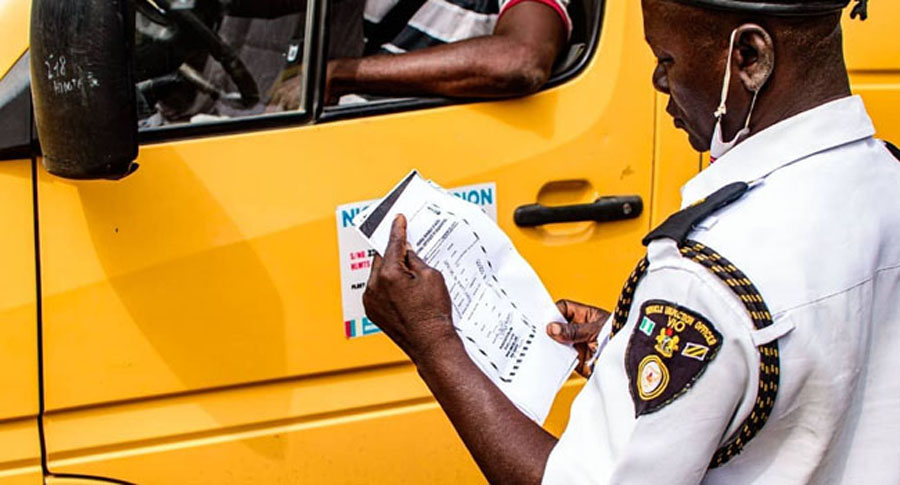
Court of Appeal Affirms Ruling Barring VIO from Seizing Vehicles or Fining Motorists
The Court of Appeal, Abuja, on Thursday, upheld a previous Federal High Court judgment prohibiting the Vehicle Inspection Officers (VIO) and the Directorate of Road Traffic Services (DRTS) from confiscating vehicles or imposing fines on motorists without lawful authority.
A three-member panel of appellate justices, led by Justice Oyejoju Oyewumi, dismissed the appeal filed by the VIO, describing it as lacking merit and affirming the October 16, 2024 ruling of the high court.
The original suit, marked FHC/ABJ/CS/1695/2023, was filed by public interest lawyer Abubakar Marshal, who alleged that he was unlawfully stopped and had his vehicle confiscated by VIO officials at Jabi District, Abuja, on December 12, 2023. He contended that the action was a violation of his fundamental rights.
READ ALSO:
- FG secures release of three Nigerians detained in Saudi Arabia
- Groups Reject Senator’s Call for Removal of NSA Nuhu Ribadu
- US authorities arrest Nigerian CEO Cashmir Chinedu Luke for alleged $7m VA fraud
Justice Nkeonye Maha of the Federal High Court had declared that no law empowers the VIO to stop, seize, impound, or fine motorists, and granted a perpetual injunction restraining the agency and its agents from further violating citizens’ freedom of movement, presumption of innocence, and right to own property.
The court held that only a court of competent jurisdiction can impose fines or sanctions on motorists. It further ruled that the actions of the Respondents violated Section 42 of the 1999 Constitution and relevant articles of the African Charter on Human and Peoples’ Rights.
Although the applicant had sought N500 million in damages and a public apology, the court awarded him N2.5 million. Respondents included the Director of the Directorate of Road Traffic Services, the Abuja Area Commander, the team leader, and the Minister of the Federal Capital Territory.
The appellate court’s decision confirms that the VIO and DRTS cannot legally harass motorists, reinforcing citizens’ constitutional rights on the road.
Court of Appeal Affirms Ruling Barring VIO from Seizing Vehicles or Fining Motorists
-
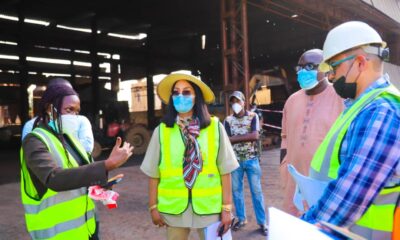
 metro3 days ago
metro3 days agoSenate Launches Emergency Probe into Widespread Lead Poisoning in Ogijo, Lagos/Ogun
-

 News3 days ago
News3 days agoBREAKING: Tinubu Sends Fresh Ambassadorial Nominations to Senate, Names Ibas, Ita Enang, Dambazau
-

 Auto3 days ago
Auto3 days agoCourt of Appeal Affirms Ruling Barring VIO from Seizing Vehicles or Fining Motorists
-

 Sports1 day ago
Sports1 day ago2026 FIFA World Cup Draw: England Draw Croatia as Brazil Face Morocco in Tournament Opener
-

 News3 days ago
News3 days agoUS authorities arrest Nigerian CEO Cashmir Chinedu Luke for alleged $7m VA fraud
-

 metro3 days ago
metro3 days agoFG secures release of three Nigerians detained in Saudi Arabia
-

 metro3 days ago
metro3 days agoNed Nwoko vows legal action against rising online harassment, criminal defamation
-

 metro3 days ago
metro3 days agoBuratai Defends Nigeria’s Resilience, Says Nation Is “Rising, Not Failing” Despite Insecurity



